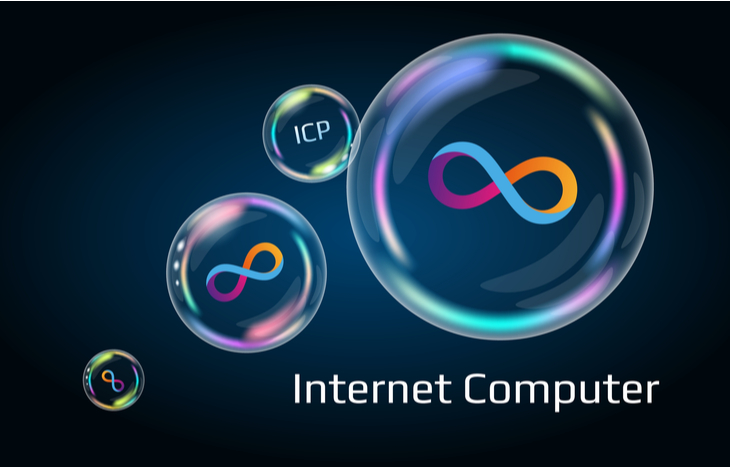
Dfinity Foundation, founded by Dominic Williams in October 2016, is the legal entity behind the Internet Computer. Dfinity aims to reinvent the internet as a computer that will host hack-proof software and a new breed of open internet services. In fulfilling this vision, the role of the Internet Computer (ICP) is to replace today’s 3.6 trillion dollars legacy IT stack and empower a new breed of software that will accelerate the transition to Web 3.0.
Headquartered in Zurich, Switzerland, Dfinity has raised funding of nearly $167 million from 12 investors. The investors of Dfinity include Andreessen Horowitz, 9Yards Capital, Polychain, Scalar Capital, KR1, SV Angel, Amino Capital, Eterna Capital, Aspect Ventures, and Village Global.
Dominic Williams, the founder and chief scientist of the Dfinity Foundation, has also served as the president and CTO of String Labs, Inc., and holds a bachelor’s degree in computer science with 1st class honors from King’s College London. Dominic decided to build the Internet Computer as a new technology stack that will be tamper-proof, fast, and scalable to billions of users globally, supporting a new kind of autonomous software that will reverse the Big Tech’s monopolization of the internet.
What Problem Does Internet Computer Solve?
In December 2020, with the initiation of the Mercury Milestone, the Internet Computer (ICP) started to spin out as part of the public internet. While discussing Internet Computer’s roadmap, Dominic Williams said the following about Internet Computer’s purpose:
1. The internet has been a global network so far. The Internet Computer (ICP) aims at extending this facility so that the internet also becomes a public compute platform. This way, users will be able to build directly on the network. Leveraging Internet Computer, developers can create traditional websites and enterprise systems efficiently and securely. They won’t have to depend on legacy IT, including proprietary cloud services, server machines, or database systems. It will diminish the existing barriers to entry, and the developer will be building simply by writing abstract logic into cyberspace.
2. Apart from empowering developers and entrepreneurs, The Internet Computer (ICP) also supports the development of open internet services, run using autonomous code. According to Dominic Williams, transparent, open, and tokenized governance systems are responsible for running the Open Internet services. If required, the developers can raise funds for such projects by selling governance tokens from anywhere in the world. As envisaged by the Internet Computer team, an open internet service would allow trustless APIs to support third-party extensions that share functionality and data with other services and users can apply to enhance their experience.
3. With its tokenization features, the open internet services will facilitate the creation of incentivized governance models, allowing gig-based businesses to have more equitable business operations.
The Product Development Process at Internet Computer
The development of the Internet Computer (ICP) happens on the Internet Computer Protocol, or ICP, operating over the open internet weaving together the compute capacity of special machines. Independent data centers around the world run these machines. To ensure that the development platform is tamper-proof, the Internet Computer leverages the benefits of advanced cryptographic models and their underlying mathematics. In the process, it eliminates the need for firewalls. The Internet Computer comprises software canisters. These are secure code units, packaging WebAssembly bytecode, and the memory pages the bytecode runs in. The process mechanism allows developers to deploy interoperable software on the network itself.
The Internet Computer Products
The Internet Computer (ICP) is the world’s first-ever web-speed, web-serving public blockchain network with the capacity to grow with demand. It is self-governing and combines special node machines run en masse by independent parties from independent data centers around the world. The Canisters, special smart contracts hosted by the Internet Computer, can serve web content directly to end-users. Users can interact with the blockchain services without having to hold tokens.
It serves as a base to enhance the capabilities of many services. It can improve tokenized internet services, pan-industry platforms, defi, and smart contracts, enterprise systems, and websites. To build on the Internet Computer, all a developer needs to do is upload canisters into cyberspace. The tokenized governance system-controlled open internet services, consisting of autonomous canisters, unlock immense opportunities for entrepreneurs and developers. You can leverage open internet services to provide alternatives to big tech solutions. You can also raise funds through tokens.
Internet Computer Tokens
The native tokens of the platform are known as ICPs. They play the three crucial roles of facilitating governance, producing cycles for computing, and rewarding participants. By locking ICP tokens, users can create neurons necessary for participating in the network governance by voting, through which they can earn economic rewards. Internet Computer (ICP) also provides a source store of value that one can convert into cycles. In terms of participant rewards, the network mints new ICP to reward and incentivize those playing vital roles, enabling the network to function.
As of now, there are nearly 124 million tokens in circulation and the total supply of ICP tokens is more than 469 million. There are two types of natural buyers of the ICP tokens. The first type consists of token holders willing to participate in network governance and earn voting rewards. The second type comprises developers looking for conversion of ICP tokens into Cycles to pay for computation.
Conclusion
The Internet Computer (ICP) protocol has emerged as a robust blockchain alternative to the traditional IT stack. It does not require legacy IT solutions, and, therefore, is not vulnerable to the expanding grip of monopolizing Big Tech. Moreover, the open internet services are opening up new opportunities for entrepreneurs, developers, and investors, worldwide. The earmarking of billions of dollars by reputed venture funds like Andreessen Horowitz, Beacon Fund, and Polychain Capital stand testimony to open internet’s future growth potential.



















